Jamaica has gifted the world more than reggae beats and spicy jerk flavours. The vibrant rhythm of the island lives in the way Jamaicans speak—full of charm, colour, and character. Whether in music, playful banter, or clever sayings, their words flow with good vibes and endless smiles.
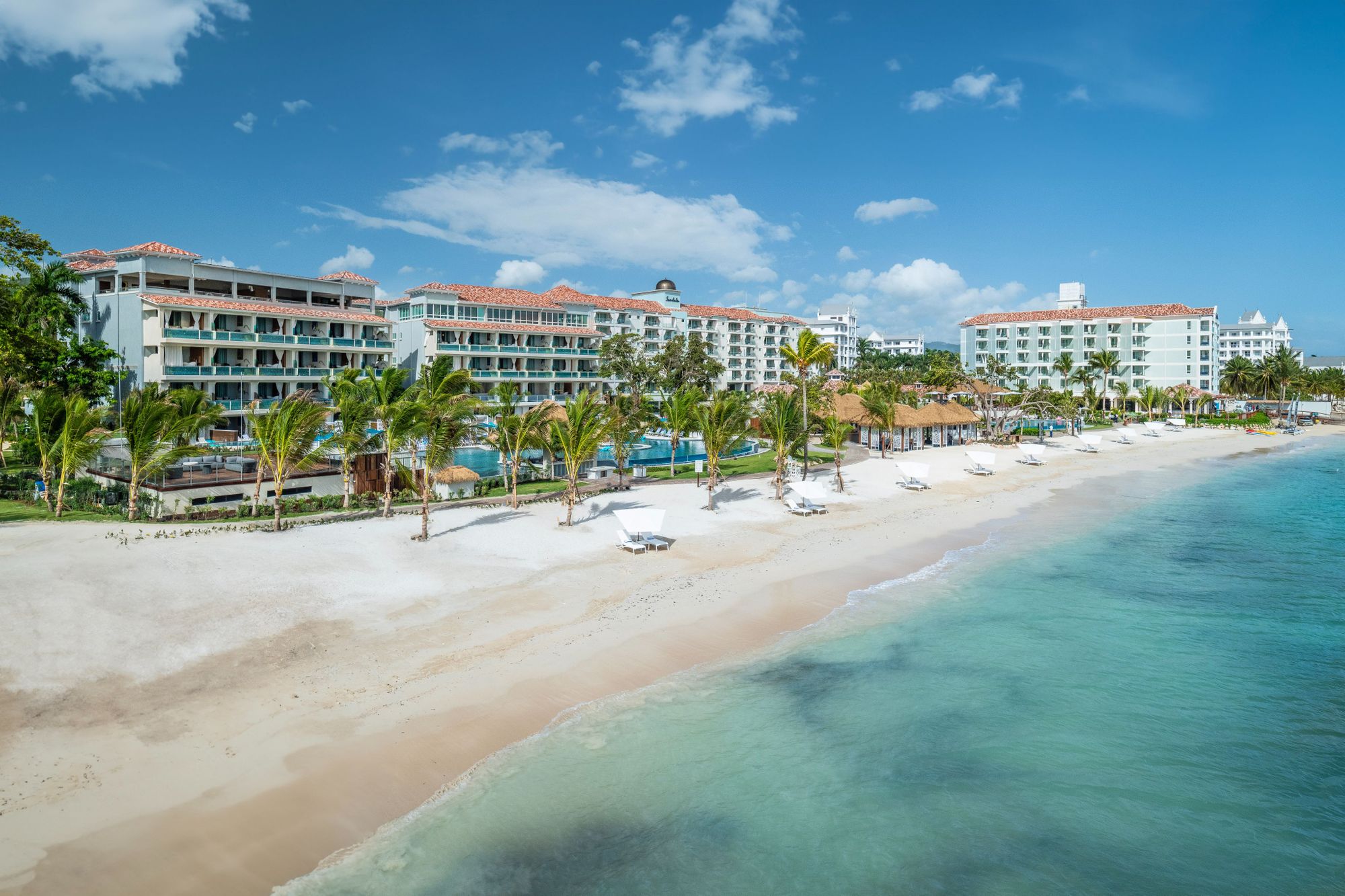
Picture: There's no better place to enjoy all that is Jamaica than at Sandals Dunn's River. The best part? All drinks are on us!
Jamaicans have a language all their own that brings the island’s energy to life. Known as Jamaican patois, this lively dialect is spoken alongside standard English across the island. While English speakers will find it easy to communicate here, learning a bit of patois is a fun way to dive deeper into the local culture.
We’ve rounded up some of the most common Jamaican phrases, sayings, and slang that islanders use every day.
Without further ado, these are the top Jamaican slang, sayings, and phrases to use when you visit the island:
"Irie" is one of the most recognisable Jamaican terms, capturing the relaxed vibe of the islands. It's commonly used by Jamaicans and other Caribbean people to convey a sense of "All is well." When asked "How are you?" or "How yuh stay?", responding with "Mi irie" is perfectly acceptable, as it means "I'm okay" or "I'm cool." Of course, there are many other phrases used for greetings across the island.
This phrase is usually said with much enthusiasm and can be a good conversation starter. It’s the Jamaican way of asking, “What's up?” or “How are you?”. You may recall when former U.S. President Barack Obama visited Jamaica and presented a now-famous speech before the end of his second term. He greeted his audience using this catchy phrase, resulting in roaring applause!
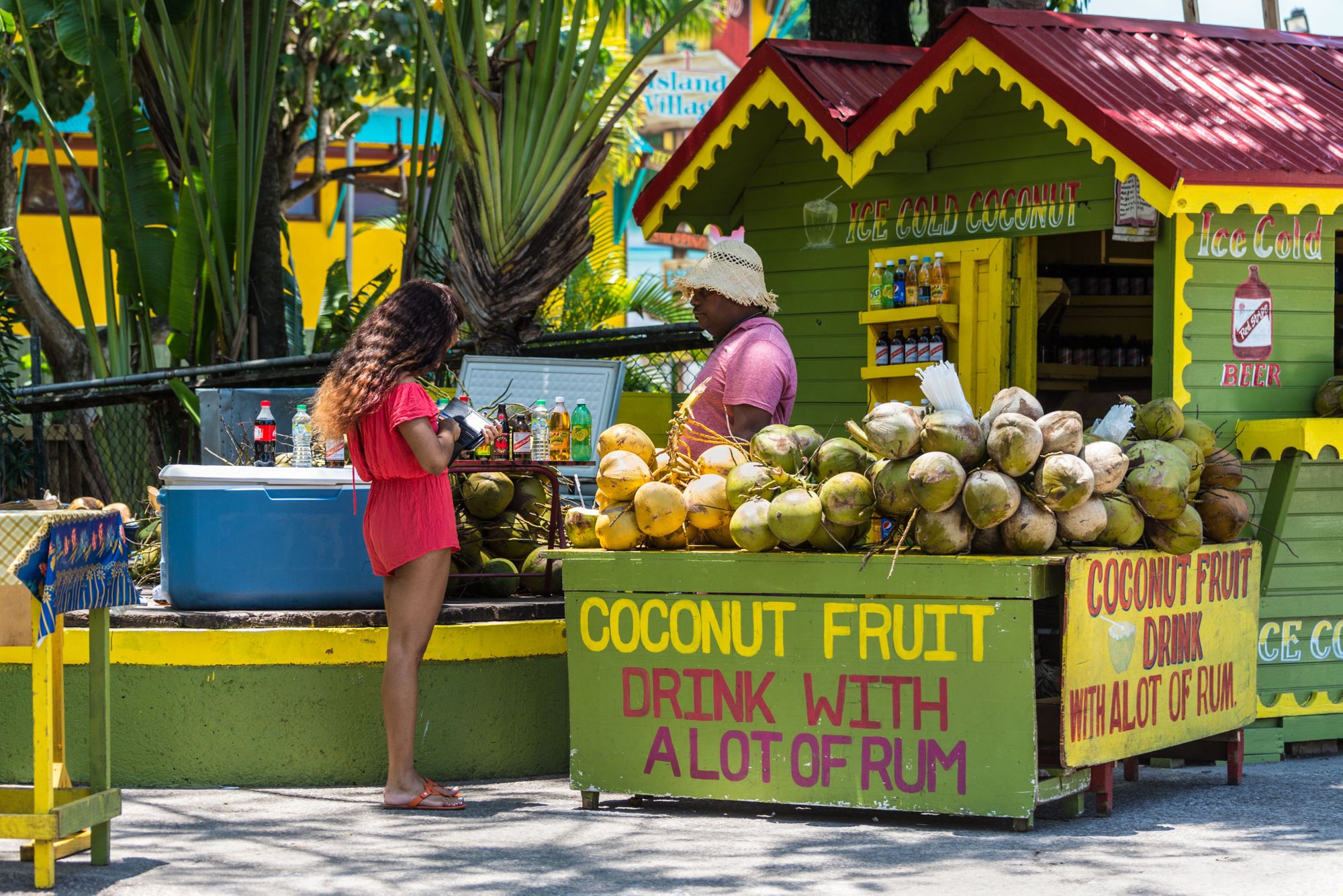
If you hear this phrase while in Jamaica, it most often will relate to gratitude. Nuff respect translates to "Thank you" or "I appreciate it". It's used to show gratitude and admiration for someone's actions, words, or presence.
This phrase translates to "You already know" or "You understand". It is often used to acknowledge agreement or shared knowledge between the speaker and listener. You might hear this term used at the end of a conversation, as a response to someone saying something like, "Mi soon come" or "Inna di morrows".
This phrase can be used as a form of affirmation or to give someone credit for something they've done. It can also be used simply to convey respect or admiration within Jamaican social dynamics. Large in this context means significant or important. It can relate to someone's stature, influence, or positive qualities.
This phrase can be literally translated to, “If it’s dirt, it’s dirt”. It’s a way of saying you have to accept the situation or circumstances you are presented with for what they are. This is one of the newer, trendy Jamaican phrases, and it communicates an acceptance of things that cannot be changed. A well-known alternative for this would be, "It is what it is”.
“Zeen” is a simple way of responding and agreeing to something that has been said. The English translation for this is “Seen”, but, in practice, it means “Got it”, “Okay”, or “Yes”. “Irie” is a common alternative for this type of response, which we'll explain more about below.
Good to know: As one of the largest islands of the Caribbean, there are a few airports in Jamaica. Here are the main Jamaica international airports.
The Jamaican phrase “Weh yuh ah seh” is very similar to “Wah gwaan”. In a literal sense, this phrase means “What are you saying?”. In Jamaica, you can use this phrase in casual conversations to ask someone how they are doing. The phrase “Weh yuh ah seh” is sometimes shortened to “Weh yaw seh”.
You might be left scratching your head if you hear this phrase while on a public bus or making your way around Jamaica. “Small up yourself" is the local way of saying, “Make room”. This phrase comes in handy in crowded spaces among friends or acquaintances. Depending on how it is said, though, strangers may find the request to be rude. So, if you’re on a bus or a taxi or just making your way through a crowded area, you might want to stick with a polite “Excuse me”.
You might have heard this phrase in Bob Marley's famous reggae track "One Love/People Get Ready". The phrase 'One Love' is a greeting or farewell and encapsulates unity, respect, and universal love. It's often used within reggae culture to convey solidarity and goodwill.
“Mi deh yah, yuh know” literally translates to “Everything is okay, you already know.” This can also mean, “I’m doing well”. The phrase is commonly used in response to “Wah gwaan”. Most people who say this will say it very fast, so you’ll have to listen closely to catch on. When you’re saying it, be sure to pronounce it properly and say it quickly, like one complete word: mi-deh-yah!
“Weh yuh deh pon” translates in English to, “What are you up to?”. This phrase is most often used when greeting a friend. Should you run into a local acquaintance while spending the day exploring your resort or around town, this would be a perfectly welcome conversation starter. If you’re on the receiving end of this question, then you can respond by saying something like “Mi deh yah”.
“Ya mon" is right up there with “irie” in terms of popular Jamaican phrases. Though this would literally translate to “Yeah, man”, "Ya mon” can be said to any person regardless of gender or age. In the literal sense, this phrase translates to “No problem” or “Okay.” A good time to use this phrase would be if you’re offered an ice-cold island-inspired cocktail or beer. Then you can respond with an enthusiastic, “Ya mon!”
Holidays are all about having unforgettable moments filled with relaxation and laughter. If a particular person or circumstance makes you laugh to the point that you can barely contain yourself, then you might want to use a phrase like “Mi dead wid laugh”. This phrase means “Dying with laughter”. You’re sure to come across many funny and chill people on this island, so we're sure this is one of those phrases you’ll end up using more than once.
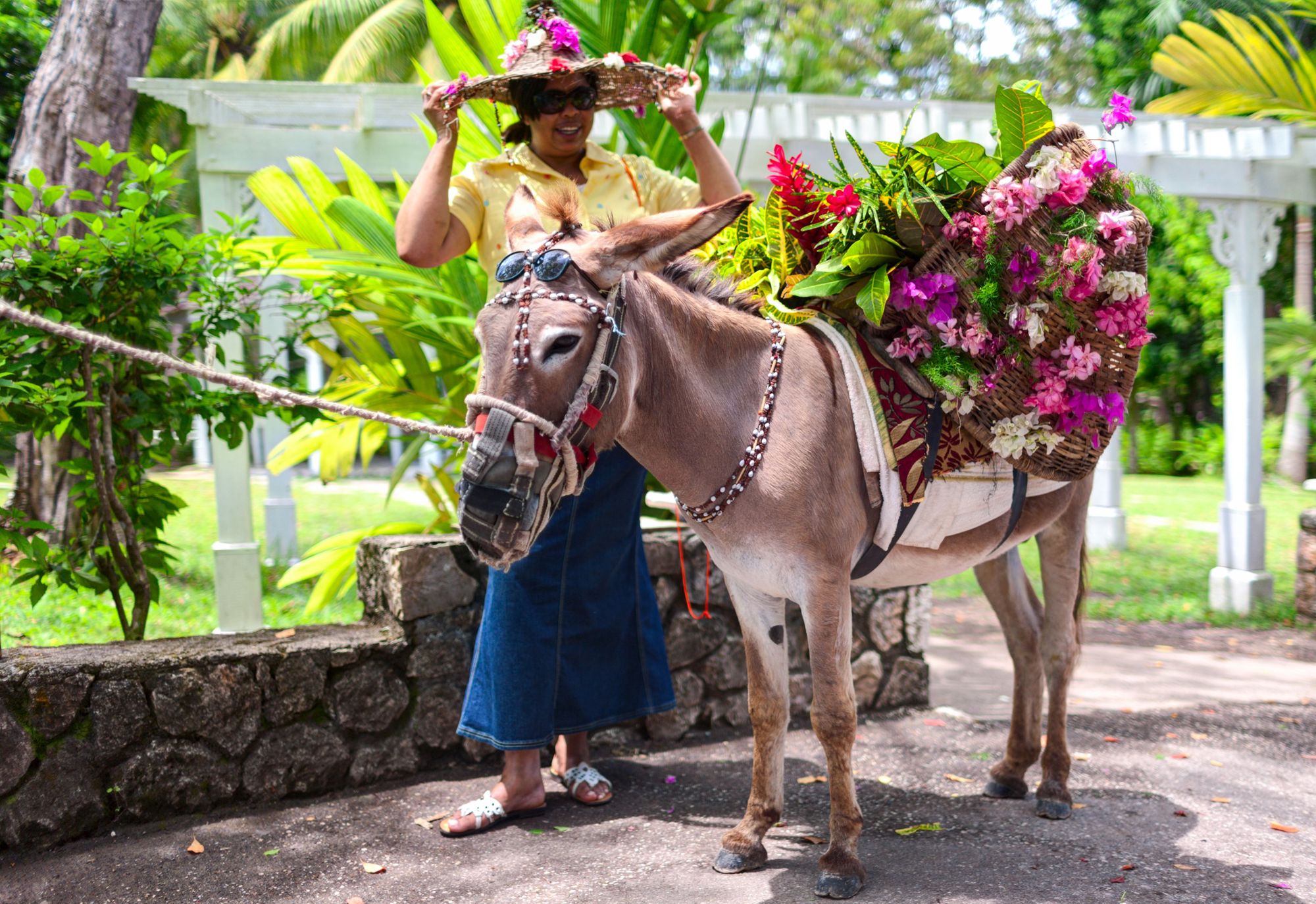
“Inna di morrows” is the Jamaican way to say "See you tomorrow”. It may be used along with other phrases, for example, "Mi a leff, inna di morrows”. Your tour guide or bartender may say this as they sign off their shifts, but you can test it out yourself to let someone know you’ll see them again the next day.
“Inner luv” is one of those Jamaican phrases that can help you connect with the locals when used right. This phrase means that one has a deeper love and appreciation for a particular thing or moment. For example, you might say, “Mi have inner luv fi your time”, to compliment the restaurant staff for their service. Using this term conveys that you appreciate something.
“Mi soon come” translates to “I’ll be there soon” or “I’ll be right there”. “Mi soon forward” can also be used in this context. These Jamaican phrases can be tricky as ‘soon’ can mean many things! When you’re soaking up the sun on this sunny isle, you’ll have a greater appreciation of how and why things seem to slow down on ‘island time’. So if someone tells you “mi soon come”, it’s best not to hold your breath. They may arrive in a few minutes, hours, or even a few days!
This is a commonly used Jamaican term that is meant to convey a distaste for bad intentions. "Bun" means to burn, and "bad mind" refers to jealousy or ill intentions. This phrase rejects bad vibes. When Jamaicans say 'bun bad mind,' they're saying no to bad intentions and yes to positivity and goodwill.
“Mash up” is common in Jamaica and across the entire Caribbean. It can be used as a verb or adjective to mean “Demolish/demolished” or “Destroy/destroyed”. You’ll likely hear this used in reference to something that is in disarray, and the term also carries some level of disbelief or shock.
“Bless up” is the Jamaican way of saying “Have a nice day”, and the phrase is sometimes used as a greeting or goodbye. “Bless up” carries with it some good Jamaican vibes, and you can use it in conversations to wish someone well.
The English translation for "Lickkle more” is actually “Little more”, but it’s often used outside of the context you’d expect. People normally mean “See you in a little while”, “See you later" or “Goodbye” when they use the term. You’ll hear this often when parting ways with people while on the island.
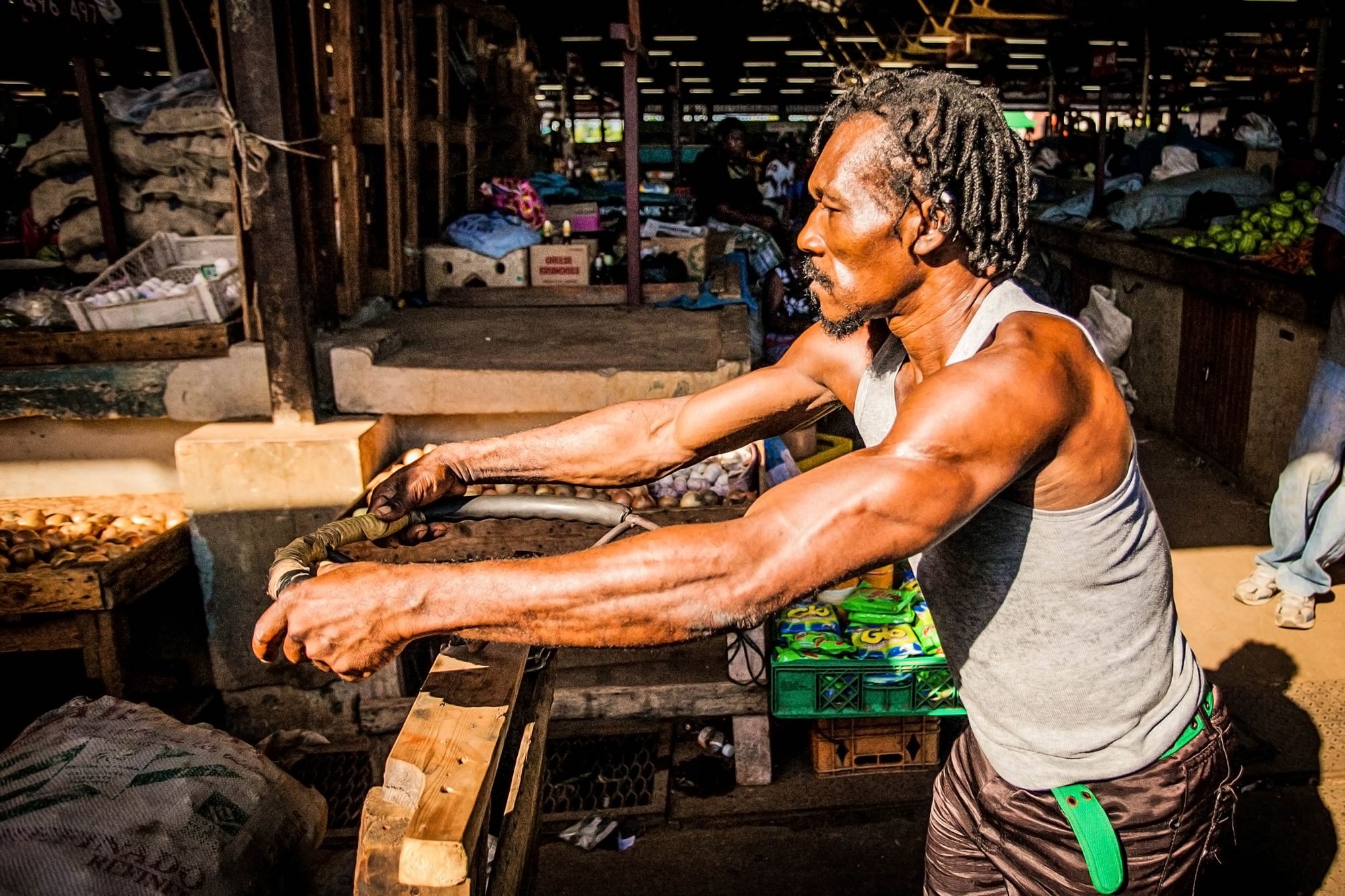
Good to know: There’s a lot to discover about Jamaica, its people, and history.
In addition to the common sayings you might pick up while getting to know Jamaica, you might hear some rather humourous phrases and sayings as well. Here are some that are both catchy and hilarious:
“Blabba mout” is somewhat self-explanatory and translates to “blabber mouth” in English. This term, both in English and in Jamaican slang, is often used to describe someone who talks too much. Chatterbox is a popular alternative.
Truly, no one ever really thinks about tasting their tongue while they talk. This Jamaican phrase, on the other hand, suggests you do so, though not in the literal sense. The “talk and taste your tongue” saying communicates the importance of thinking before you speak.
Used as a reassuring phrase for single people, this phrase is a roundabout way of saying, “Don't lose hope!”. “Every hoe have dem stik a bush” translates to mean that there’s someone out there for everyone.
You might hear the phrase, ‘De olda de moon, de brighter it shines” which refers to the wisdom that can come with age. The phrase means, “the older the person, the wiser he or she is.” The sentiments of this Jamaican phrase can often be seen in other cultures through various other sayings.
There are some Jamaican phrases that will have you either scratching your head or doubling over in laughter. This is one of those! The “sake a mout fish get ketch” phrase is a play on words that people who engage in fishing will understand. It literally means that talking too much can get you into trouble.
Expert tip: As fun as it can be to learn a bit of Jamaican patois, it's reassuring to know you won't need to master the language in just one trip. Just knowing a little bit about the local language is usually enough. Of course, if you want to dive a little deeper, you can also explore some Jamaican culture and traditions.
Across the Caribbean, every island has its own unique way of speaking, and Jamaica is no different. Start picking up the local lingo even before you land. With the Jamaican sayings and phrases in this post at hand, you’ll be ready to chat like a local and fully embrace the vibes of your next Jamaican holiday.
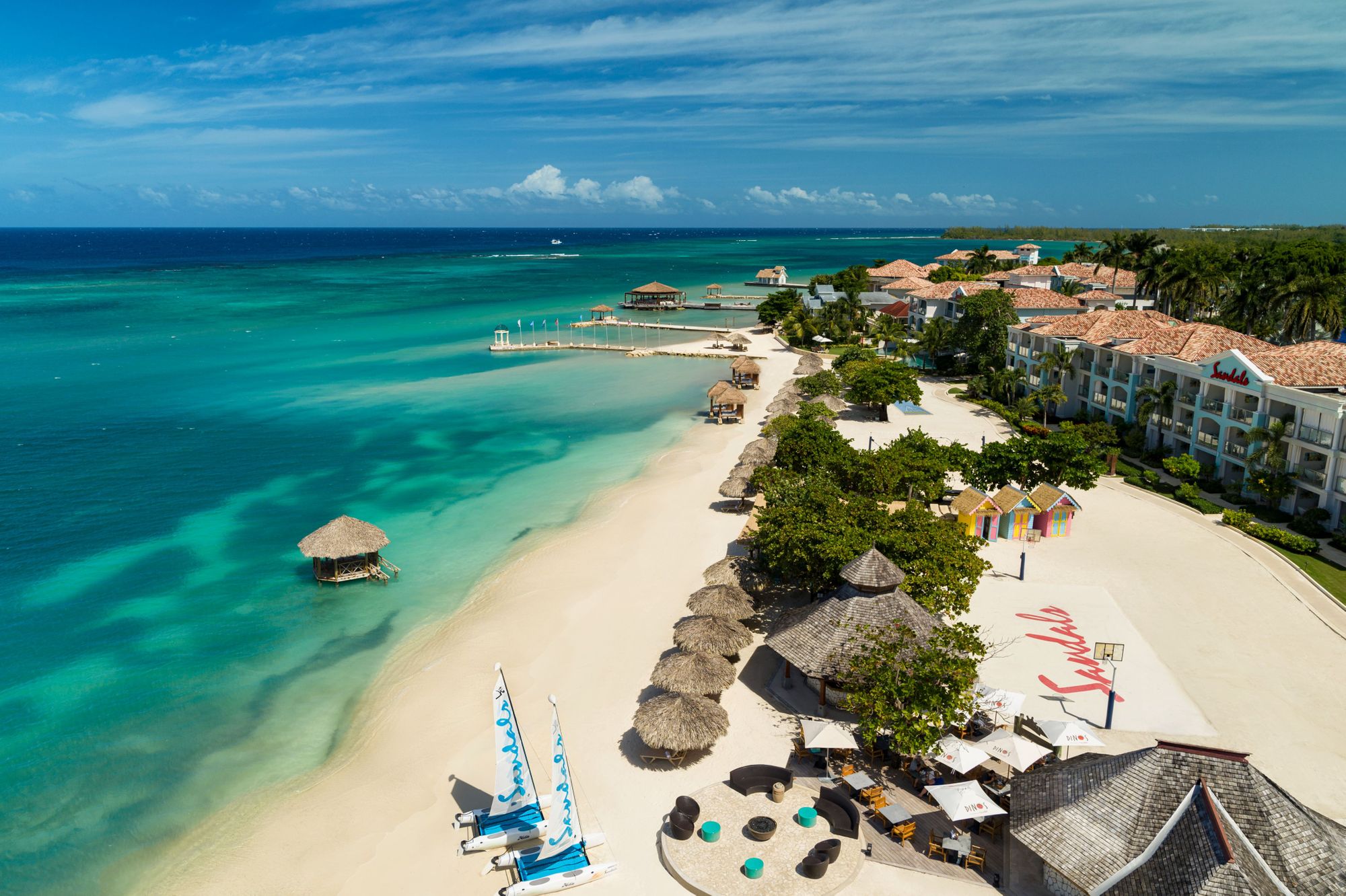
Picture: Enjoy the private white-sand beach at Sandals Montego Bay, just a short ride from the airport. Ideal for a short island holiday!
Thinking about your next holiday? If you’re still deciding where to stay, Jamaica is home to some fabulous all-inclusive resorts that travellers can’t get enough of. Sandals resorts in Jamaica top the list—perfect for dreamy Jamaica weddings and romantic honeymoons.